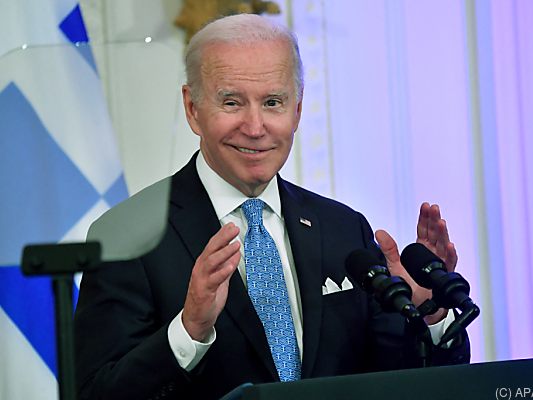
Biden reviews Trump’s course in Cuba
© APA / AFP
The US government is softening its course toward Cuba somewhat. The State Department announced Monday evening (local time) that it will resume consular services and visa processing at the United States Embassy in Havana to allow more Cubans to visit their relatives in the United States. The current cap on transfers of funds from the United States to relatives in Cuba will be raised.
In general, more travel between the two countries should be allowed again. In addition, the Cuban private sector should have better access to US Internet services and e-commerce platforms.
“We will ensure that remittances flow to the Cuban people more freely while not enriching those who commit human rights abuses,” the officials said. US companies and citizens will continue to be barred from doing business with the companies on the sanctions list because of ties to the Cuban government or military.
In a statement, the Cuban Foreign Ministry described the decision as a “limited step in the right direction.” However, it does not change anything about the US embargo on Cuba or the central “economic embargo measures” of former US President Donald Trump.
At the end of April, the United States and Cuba held direct talks on immigration at a senior diplomatic level for the first time in four years. Among other things, it was about implementing existing immigration agreements – also in light of the recent increase in illegal immigration from the socialist Caribbean nation to the United States. The Cuban Ministry of Foreign Affairs has criticized, among other things, the United States’ failure to adhere to a bilateral agreement that guarantees 20,000 entry visas for Cubans each year. A senior US government official has now said this scale needs to be reached as quickly as possible.
The number of staff at the US Embassy in Havana was reduced to a minimum years ago due to the “Havana Syndrome”. Dozens of US diplomats and their families living in the Cuban capital have been complaining of mysterious headaches, hearing loss, dizziness and nausea since 2016. Similar complaints were later reported elsewhere in the world. A US intelligence report in February said some cases of “Havana syndrome” may have been deliberately caused by some form of electromagnetic radiation.
During his tenure in office, former US President Donald Trump curtailed an rapprochement with Cuba that his predecessor Barack Obama had begun. Now Trump’s successor, Joe Biden, is turning things around again. The government official stressed there was no connection between the current plans and the upcoming America Summit in Los Angeles in June – a gathering of countries from North, Central and South America. Several heads of state have recently questioned their participation in the summit if Cuba or other countries were not invited due to criticism of their political leadership. The government official confirmed that decisions regarding the invitations are still ongoing.

“Food practitioner. Bacon guru. Infuriatingly humble zombie enthusiast. Total student.”








More Stories
Kyiv: Russian Kursk offensive halted
US Presidential Election: Former US Government Officials Warn Against Donald Trump's Election
Netherlands wants to leave asylum system